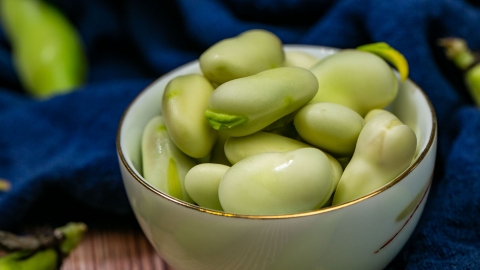What foods should patients with favism avoid eating?
Generally, individuals with glucose-6-phosphate dehydrogenase (G6PD) deficiency (favism) should avoid eating fresh fava beans, fava bean products, certain legumes, processed foods containing fava bean ingredients, and fruits with strong oxidizing properties, as these foods may trigger hemolytic reactions and affect health. Detailed analysis is as follows:

1. Fresh Fava Beans: Fresh fava beans contain oxidizing substances such as vicine. Patients with favism lack glucose-6-phosphate dehydrogenase in their bodies and cannot effectively metabolize these substances after consumption, making them prone to red blood cell rupture and resulting in hemolytic reactions.
2. Fava Bean Products: Products such as fava bean paste, fava bean powder, and fava bean snacks are all made from processed fava beans and still retain the oxidizing components of fava beans. Even after processing, these components may trigger hemolysis in individuals with favism and must be strictly avoided.
3. Certain Legumes: Such as pearl millet beans and certain dried beans, some varieties contain oxidizing substances similar to those in fava beans. Consumption by individuals with favism may pose hemolytic risks similar to those from consuming fava beans, so these should be carefully avoided.
4. Processed Foods Containing Fava Bean Ingredients: Such as pastries, puffed snacks, and compound seasonings containing fava beans. The fava bean content in these foods may not be obvious, but they may still contain oxidizing substances. Accidental consumption may trigger hemolytic reactions in individuals with favism, so ingredient labels must be carefully checked.
5. Fruits with Strong Oxidizing Properties: Such as blueberries and cherries, which contain certain oxidizing components. Small amounts are generally safe, but excessive intake may increase oxidative stress in individuals with favism, raising the risk of hemolysis, so consumption should be controlled.
In daily life, in addition to preventing hemolysis through dietary adjustments, individuals with favism should also avoid contact with fava bean pollen to prevent reactions from inhalation. Attention should also be paid to avoiding medications containing oxidizing components, maintaining regular作息 (sleep-wake cycles), and avoiding excessive fatigue, which helps maintain physical stability.










